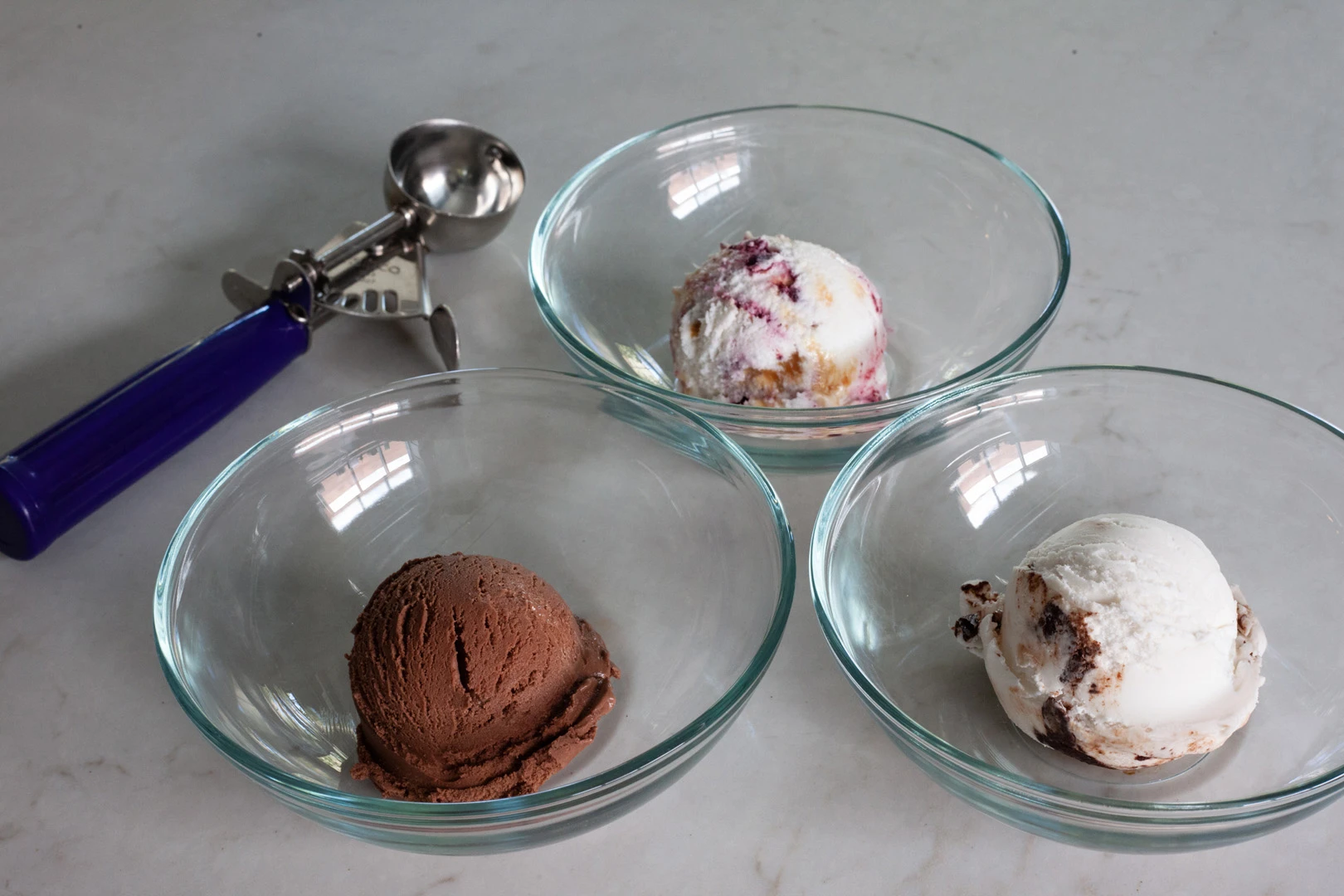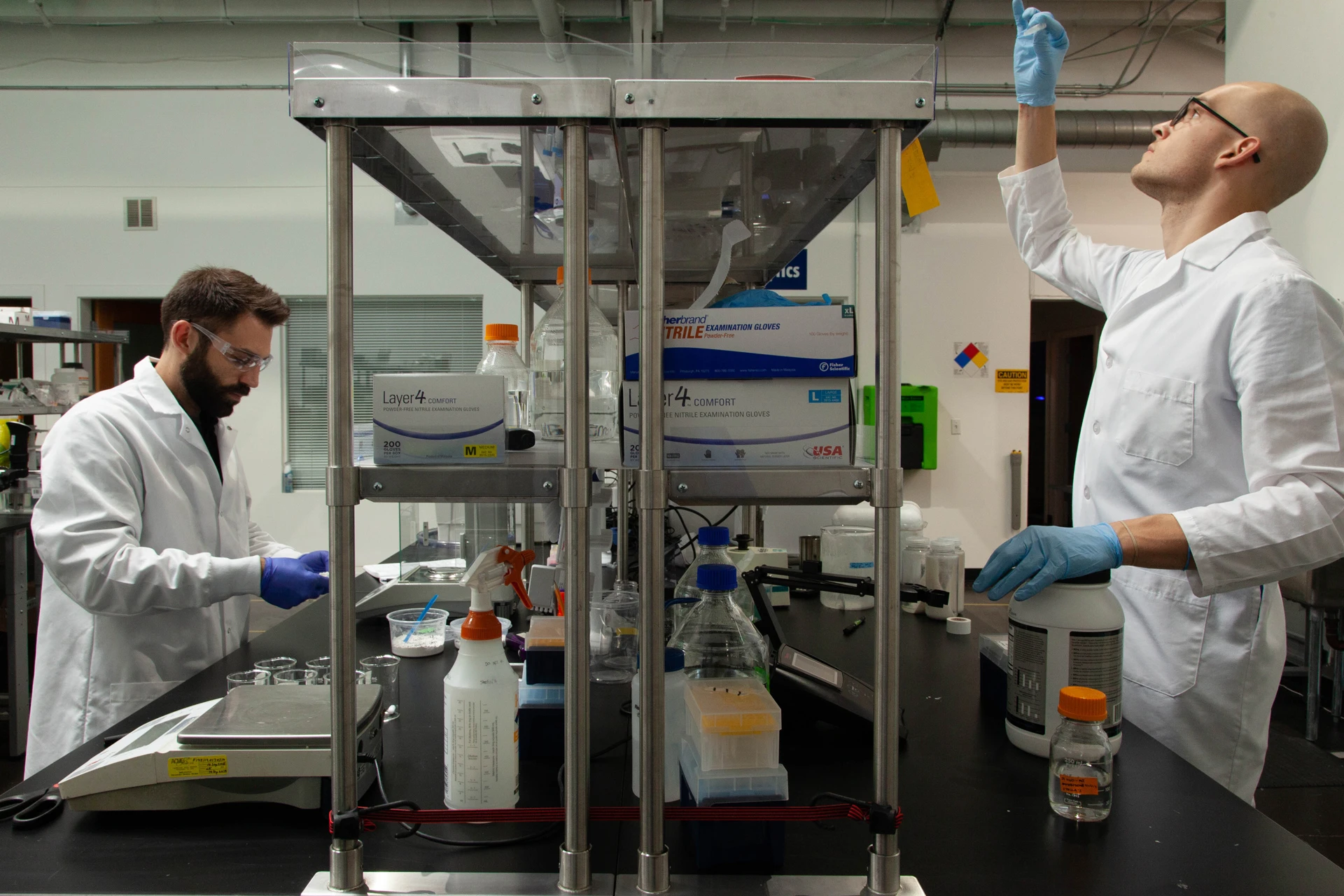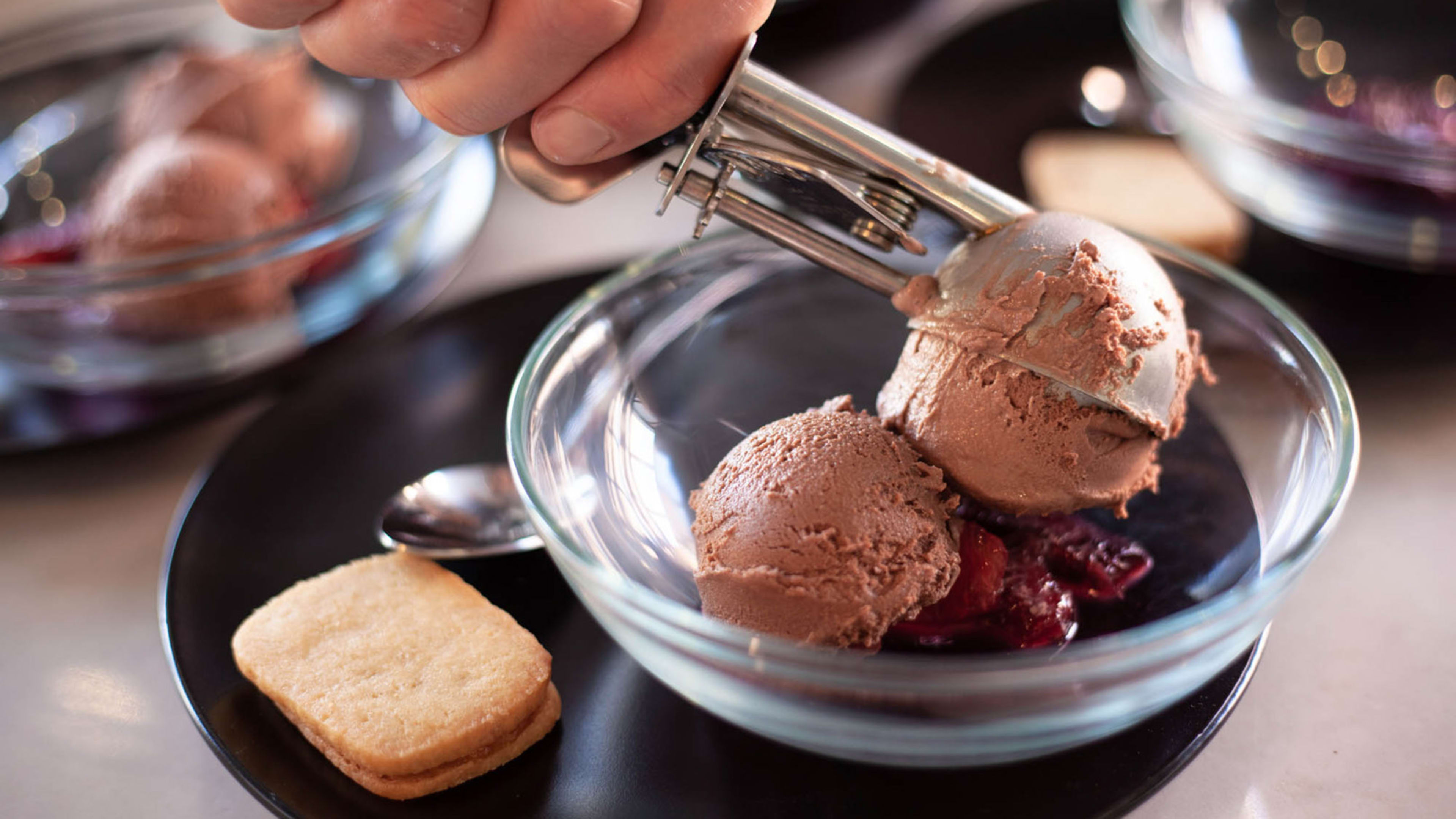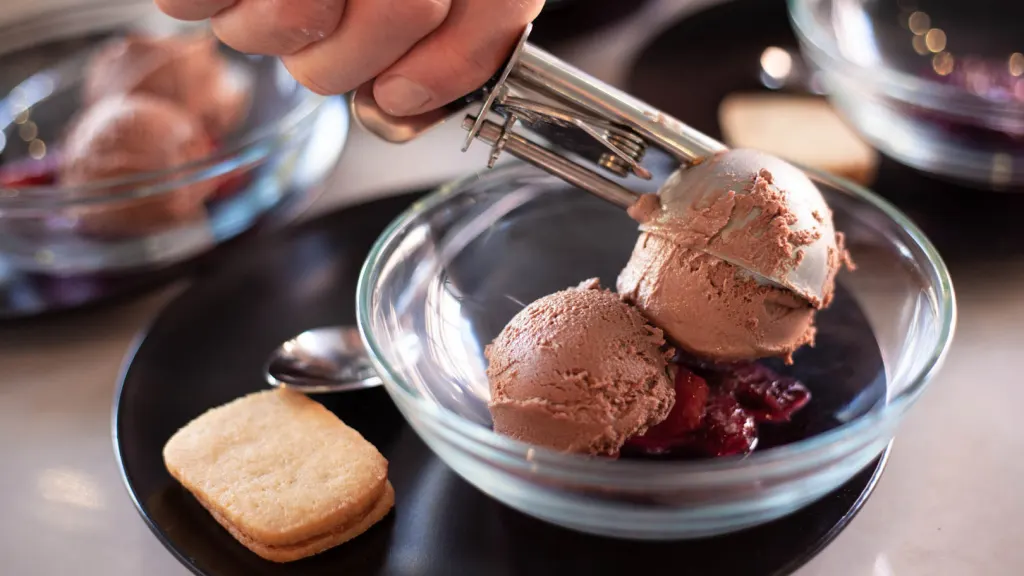I’m holding a tiny cup of what looks exactly like—and tastes exactly like—vanilla ice cream with salted fudge. But the protein inside it came from a bioreactor, not a cow.
Perfect Day, a Bay Area-based startup, has spent the last five years developing technology to make protein that is genetically identical to dairy protein through fermentation. The founders, bioengineers who happen to be vegan, both saw the need for animal-free dairy products that tasted better than alternatives on the market with plastic-like textures or cardboard-like flavors.

“Both of us happen to have a similar background of working in medicine, where therapeutics and medicines are made using basically fermentation already today,” says Ryan Pandya, who cofounded the company with Perumal Gandhi. “And so the two of us started scratching our heads and wondering, what if we just apply that same exact technology that’s been around for half a century to make the world’s most in-demand, highest-quality protein?”

The company engineered yeast with DNA to make it produce casein and whey, the same proteins found in dairy. It’s lactose-free and avoids the environmental footprint of raising cows, from the land used for grazing or growing cattle feed to the greenhouse gas footprint from cow belches and manure. But it has the same nutrition as dairy protein and the same taste. Combined with plant-based fats and sugar, it’s possible to make ice cream that is indistinguishable from the real thing. “We’re able to use this protein to make products that totally scratch the itch in terms of having the experience, the mouthfeel, the flavor, and creaminess of dairy, but again, none of the animal downside,” says Pandya.
Perfect Day plans to supply its protein as an ingredient for large food manufacturers—many of which have goals for steep cuts in greenhouse gas emissions and haven’t yet figured out how to accomplish those goals. It’s partnered with the ag giant ADM to scale up production. The new ice cream, which will be available in a limited edition of samples for consumers to order online beginning today, is a demonstration of what a future product may be.

The product could be made anywhere, and the company hopes to help supply protein to regions that can’t support animal agriculture now because of harsh climates. “It also helps us to be a little bit more prepared if and when the kind of climates that today can’t support dairy become more prevalent all over the world,” Pandya says.
The company’s animal-free dairy will compete with dairy on cost. “The idea that we can do more with less is both the reason that it can be more affordable and the reason that it can be more environmentally friendly,” he says. Without the need to raise 2,000-pound animals, fewer resources are required. “Once we’re at full scale, our process actually allows us to make these products more affordably,” says Gandhi. “That is part of our vision at the end of the day: We need people everywhere to embrace it. It needs to be the most affordable source of nutrition.”
Recognize your brand’s excellence by applying to this year’s Brands That Matter Awards before the early-rate deadline, May 3.







